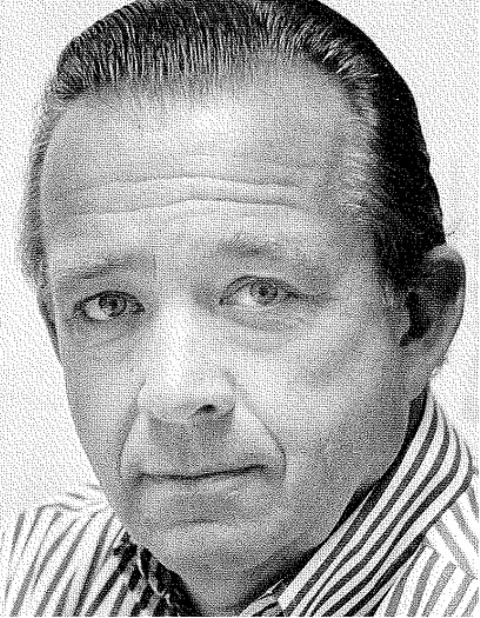Twenty years ago, the Wheaton Alumni magazine began a series of articles, titled “On My Mind” in which Wheaton faculty told about their thinking, their research, or their favorite books and people. Associate Professor of Theology Emeritus, Donald Max Lake (who taught at Wheaton from 1970-2000) was featured in the Autumn 1994 issue.
 After having taught at Wheaton for almost 25 years, I almost always have students in my classes who are children of some of my former students from the early 1970s. I’m never sure what reaction I’ll get from these young people. The fact that their parents did not warn them against taking my classes is encouraging.
After having taught at Wheaton for almost 25 years, I almost always have students in my classes who are children of some of my former students from the early 1970s. I’m never sure what reaction I’ll get from these young people. The fact that their parents did not warn them against taking my classes is encouraging.
As I personally look back over almost 30 years of being at Wheaton, both as a student and now as a faculty member, I sometimes ask myself, What did I remember from my classes? From our days as students, we often remember some irrelevant point like the prof wasn’t very good at spelling on the blackboard, or she never wore blue, or he overused the expression, “It is a well- established fact.”
Few of my professors, either from undergrad or grad school, truly stand out. And as I reflect upon the courses I took as a student, the content is a blur. So then, what is teaching? And what is learning?
One answer to these questions has to do with an over-used word: integration! For many years now, we’ve repeatedly emphasized the “integration of faith and learning.” There is, however, a much more powerful and pertinent use of this term: learning as integration. Although I’m only a novice at the discipline of psychology, I’m convinced that one of the major functions of the brain and the mind, or the self, is the ability to integrate all we see and hear. I rarely know what is going on the the minds of my students as I lecture or have them view a video. But for those who are awake, I know that a process is taking place in which ideas, facts, and perspectives are being integrated. (I often tell my students that one of the most profound things Siddhartha Gautama, known as Buddha, ever said was, “I am awake!”) Like the dairy process of homogenizing milk, learning is a also a process of homogenizing the style and personality of a professor as well as the content of the course and the subject matter with the student’s being.
That students may not recall a single lecture or a specific text or even a key idea from a course should not surprise us. Forgetting is one of the most troubling but most valuable dimensions of our selves. One can only carry so much baggage! On the other hand, a powerful process has occurred: the mind, the self, has integrated each new course into what is becoming a person or a new being. Parents notice these changes in dramatic and subtle ways. And as a parent, part of me wants my children to ever remain the same, and yet I know that change is the heartbeat of life. And so coupled with integration is the vital result of all learning: change.
So now as I approach each new year and each new class, I keep asking myself, How do I want to change these students? And I keep challenging them to ask themselves, What am I becoming? How have I changed as a result of this course? Facts and ideas are vital to this changing process; however, it is possible to look at learning as only the recall (a kind of Platonic view of education) of information and for the sake of the test, a regurgitation.
I’ve been thinking a lot lately about the educational process as being not only change but also character-formation. I am concerned that those of us who work in Christian higher education have allowed the world, the educational world, to set the agenda for us. Accreditation associations have a way of forcing all institutions into a rather conformist mold. But the call of Jesus to make disciples, and the Biblical teaching that “we shall all be conformed to the image of Christ” challenges me to think of my teaching more as forming character than in teaching a subject or better yet “teaching students.” Those who have studied Jesus’ message and methods are convinced that he was a master Teacher, but Jesus was very much a nonconformist and he often dared to challenge the status quo.
This December, as I complete 25 years teaching at Wheaton, I am grateful to God. I cannot think of any place on this planet where I would have rather spent the past 25 years. I never dreamed, as a green Missouri farm boy, when I first stepped foot on Wheaton’s campus in September 1955, that someday I’d be on the faculty. Professors including Gerry Hawthorne, Ed Hollatz, and Kenneth Kantzer made a lasting impression on me–they changed me!
How did your years at Wheaton change you?
———-
Dr. Lake graduated from Wheaton in 1959 as a Bible major, took his M.A. in 1960 in New Testament theology and earned his Ph.D. in historical theology at the University of Iowa (1967). Don and his wife, Kristen, have three sons and one daughter. At the time of publication, Dr. Lake contributed several articles to encyclopedias and books, and was a member of the Evangelical Theological Society, as well as the American Academy of Religion. In addition to his teaching, he served pastorates in Missouri, Iowa, and Illinois and also directed a unique Christian housing program knows as King’s Partners International.